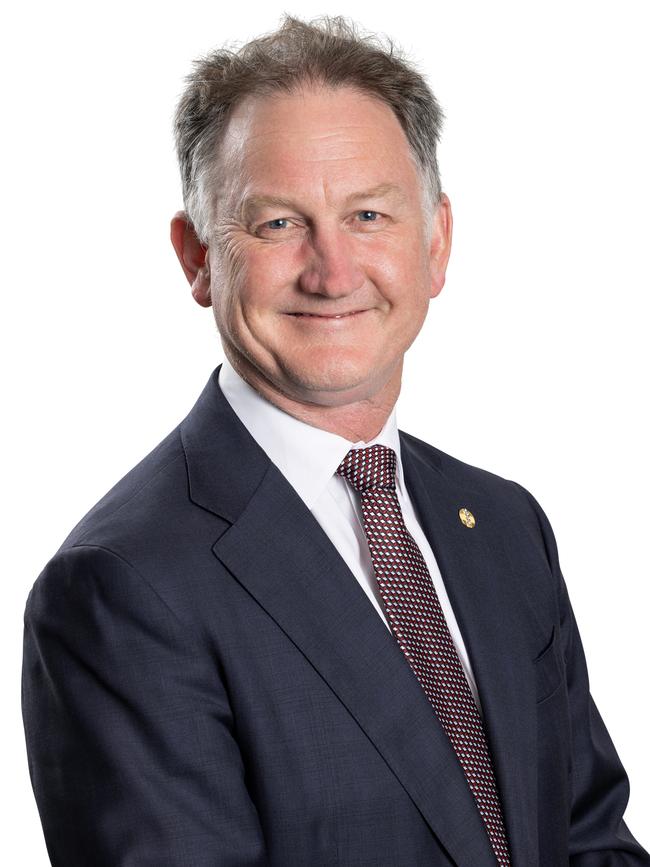Are you ready for ageing? There are limits to care
The new ‘rights-based’ aged care system will be rationed, just like universal free healthcare. Promises won’t match delivery.

The Aged Care Bill that passed both houses of parliament last year will become the new Aged Care Act on July 1, no matter who is prime minister by then.
The new act picks up the remaining recommendations from the ageing royal commission and has been couched as “rights based” as, at its centre, it lays out the rights of older people to receive government-subsidised aged care.
Governments of both persuasions like to talk about our universal healthcare system and free treatment under Medicare. Of course it is a fallacy. Out-of-pocket costs in the private system grow year on year and care in the public system is rationed using a variety of mechanisms including heavily bureaucratised central referral systems, long waiting times for outpatient appointments and further waiting times for elective surgery. A topic for another article another day.
The “rights-based” aged-care system will also be heavily rationed, at odds with the royal commission’s recommendations – ie, as with healthcare, there will be a difference between what is promised by government and what it actually delivers.
The act will deliver significant growth in the number of home care packages. To its credit, the Albanese government has delivered significant wage increases for workers in the sector. But the demographics and the future growth in demand are frightening.
In South Australia and Tasmania more than 20 per cent of the population is aged over 65. We are only just experiencing the first wave of baby boomers entering aged care. Demand on the sector is only going to continue to grow.
How many Australians genuinely understand the aged care system? We are bad at talking about dying. We are almost as poor in our literacy on ageing. That needs to change because the ability and willingness of governments to pay for aged care is also limited.
How much of my pension will I have to give up? What if I have a part-pension? What if I am a self-funded retiree? What if I have a Seniors Card? Do I have to sell the family home? What if only one of us needs residential aged care? Most people do not know the answers to these questions.

The government’s My Aged Care website (www.myagedcare.gov.au) is a useful source of information. Aged Care Placement Consultants can be a godsend to those individuals with the means to pay.
Families need to talk more about ageing. Individuals living alone will require more support. For couples, it is almost inevitable that the rate at which they age and their need for either home supports or residential aged care will occur at different rates.
People need to think about where they live. Do they have a regular GP? How easy is it to get there? Will they be able to drive in five years’ time? Should they be driving in five years’ time? What are the public transport alternatives? Will they be able to get on and off a tram? Does their GP do home visits? What about specialist medical care and other ancillary care such as physiotherapy? How easily can I access home care? What if my spouse or partner needs to live in residential care and I don’t?
Most of us are not thrilled about the prospect of ageing. It is inevitable that hobbies and tasks that were readily and easily enjoyed and undertaken become more difficult. Older Australians typically live with one or more chronic health conditions. The organism invariably deteriorates. Osteoarthritis is the most common chronic health condition in Australia. Its impacts can be exacerbated by osteoporosis and cognitive impairment.
The hospital system is ill-equipped to deliver acute care to the increasing number of older Australians. Those of us working in the aged-care sector maintain our concerns about the financial sustainability of our sector. We are delighted that our hardworking staff have been rewarded with significant improvements in their pay and conditions. But ultimately that needs to be funded, whether we are talking about the for-profit or not-for-profit sector, by contributions from clients, residents, their families, or government.

The difficult conversations about ageing, disability and dementia should occur long before the all-too-common hip fracture or pneumonia that results in acute admission to hospital and the revelation of the need for aged care placement. Individuals need to broach these topics with people such as those who love them, their financial planners, and their GPs.
There is much to be excited about in the new act. We are a kind and generous society. We are willing to support the care of older Australians through our taxation system. But there are limits to what will be provided as the proportion of older Australians increases in relation to the number of people who are net contributors to the tax system.
Future governments will require finesse and skill in managing the sector and the demographic cliff facing us. We have already seen the failure of the lazy reliance on immigration as a way of addressing workforce and skills shortages in other sectors. Whatever the case, many older Australians are going to have the contribute more to be able to live healthy and well in the years ahead.
Dr Michael Gannon is a consultant obstetrician and gynaecologist and served as president of the AMA from 2016 to 2018. He is president of leading professional indemnity provider MDA National.
Disclosure: Dr Gannon is a board member of Amana Living, a leading provider of residential aged care and home care in Western Australia.
This column is published for information purposes only. It is not intended to be used as medical advice and should not be relied on as a substitute for independent professional advice about your personal health or a medical condition from your doctor or other qualified health professional.





To join the conversation, please log in. Don't have an account? Register
Join the conversation, you are commenting as Logout